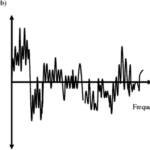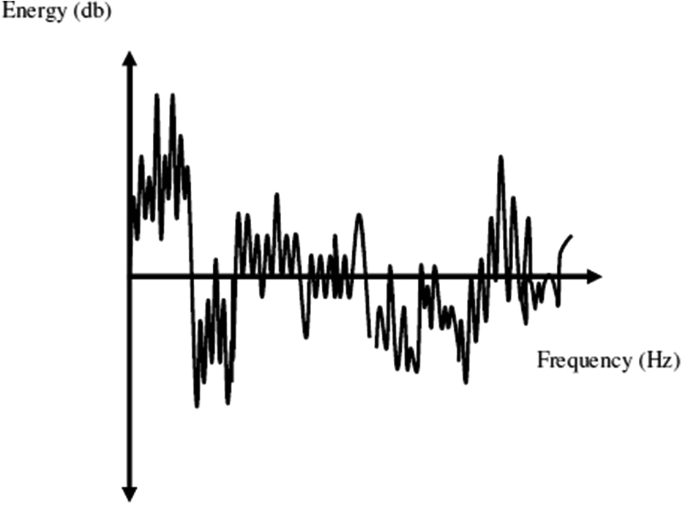The digital age has been a boon for music and audio fans alike. Music streaming, digital downloads and centralized music libraries have revolutionized the way we access, store and play audio. But what if this audio could be even better? What if you could unlock the full potential of your favorite tunes?
Enter the world of audio cleaning services. Audio enhancement services are a unique and innovative set of services that take existing audio formats like MP3s and WAVs and use a variety of techniques to make them sound better. Depending on the service, audio enhancements can include noise cancellation, equalization, reverb control, dynamics control, and more. Each of these techniques is designed to bring out the best in your audio, regardless of the quality of the original recording.
The goal of audio enhancement services is simple: to bring out the highest quality recordings possible. With the right services, you can make your favorite music sound as if it was recorded in the studio, allowing you to listen to it in high fidelity. And if you have a collection of older recordings or live recordings that have degraded over time, these services can help to restore them to their original glory.
So if you’re looking to unlock the full potential of your audio, and take your listening experience to the next level, audio enhancement services may be the answer. Read on to learn more about what audio enhancement services are and how they work – as well as the numerous benefits they offer – and find out why audio enhancement services can make all the difference when listening to your favorite tunes.
Quick Explanation of Key Points
Audio enhancement services can improve the overall sound quality of your audio recordings. Benefits include better clarity, increased dynamic range and stereo imaging, improved noise reduction, and optimized equalization for professional-grade audio output.
How Audio Enhancement Services Help

Audio enhancement services can greatly improve the listening experience of any audio, from podcasts to radio broadcasts. They can help reduce ambient noise, boost clarity, and even increase volume levels. All of these improvements work together to provide listeners with a more immersive and enjoyable experience while listening.
The benefits of audio enhancement services are evident, especially when used on low-quality recordings. A good audio enhancer will help deliver enhanced sound quality by removing background noise and increasing clarity. This can bring out nuances in an audio that may have been difficult to detect previously. By boosting the sound’s overall level, an audio enhancer can also add depth and richness that can greatly improve the listening experience.
At the same time, some argue that too much enhancement can ruin an audio; for example, overprocessing audio can remove the nuances of a performance and make it sound unnatural or artificial. It is important for producers to find a balance between enhancing their audio enough to create a more dynamic and high-quality listening experience without becoming too reliant on a few effects tools that detract from its intended direction.
By using intelligent EQ curves, careful limiting, subtle noise removal tools, as well as other effects such as reverb or delay, an audio enhancer can take any sound to new heights without compromising its original goal or intent.
In conclusion, audio enhancement services are powerful tools in the hands of experienced producers who understand how to use them wisely. These services have the power to elevate any recording and transform it into an immersive listening experience. In the next section, we will discuss how these services provide improved listening experiences and thus benefit our audience.
Most Important Points to Remember
Audio enhancement services can significantly improve the quality of any audio, resulting in a more immersive listening experience for listeners. Removing background noise, boosting clarity, and increasing volume levels can bring out details in recordings that may have been difficult to detect before, while being mindful of not overdoing it with too many audio effects tools or modifications. In conclusion, audio enhancement services are powerful tools for experienced producers to elevating any recording into a more enjoyable listening experience.
Improved Listening Experience
The promise of enhanced audio is to provide listeners with a higher quality, more pleasant and detailed listening experience. Once the potential of your audio has been unlocked through services such as vocals and instruments processing, restoration, and mixing and mastering services, it can provide a satisfying and enjoyable journey listening to the same material without enhancements. By enhancing audio recordings, listeners can experience a fuller soundscape with improved clarity and accuracy compared to its original state.
Whether improving an existing audio production or starting from scratch, every element involved requires optimizations to reach the ideal sound while maintaining balance and emphasizing sonic detail. With amplification, equalization, dynamics processing, saturation effects, along with other mastering techniques, audio personnel are able to maximize each portion of the music while accentuating various sonic characteristics that all contribute to providing a listener with an improved listening experience.
The most drastic improvement in listening quality generally comes from optimizing frequency response for similar levels of loudness across different styles of music and loudspeakers or headphones; this helps tolerate certain frequency ranges over others and eliminates distortion that may have been present prior to enhancement. Enhancements can also be used to identify unwanted sounds such as clicks or pops that create unpleasant experiences for the listener due to abrupt changes in sound consistency. By utilizing methods like inter-sample peak detection and by preemptively identifying any errors during production can enhance the overall listening experience even before post-production adjustments are made.
Ultimately when unlocking audio’s potential through enhancement services, every aspect of the music should be taken into consideration – from vocal intonation and range all the way down to operating system settings. This comprehensive approach ultimately allows for improved audio fidelity which further enhances the listener’s enjoyment of the material.
With proper enhancements made to improve both output devices settings and inherent qualities of the original content itself, listeners can experience an improved listening experience that brings them closer than ever before to the creative minds behind recordings in question. Next we will take a look at how improvements in audio fidelity come as a result of these enhancements.
Improved Audio Fidelity
In today’s digital age, audio quality is often sacrificed due to limitations within consumer devices and services. To overcome this, many audio engineers utilize audio enhancement services to take advantage of specialized tools and techniques that improve the fidelity of sound. Improved audio fidelity, while highly sought after, can have both advantages and disadvantages depending upon the intended use.
On one hand, improved audio fidelity can result in a clearer sound. This can bring out nuances, such as the timbre of instruments or vocal subtleties, that may have been lost in lower-quality recordings due to distortion or other processing artifacts. For those recordings intended for critical listening purposes, such as an audiophile class recording or a master mix, improved audio fidelity yields obvious benefits.
Similarly, improved audio fidelity can prove beneficial for location-based recordings and scenarios where background noise or reverberant environments are present. Services like noise reduction can isolate dialog and sounds from distracting noise that would otherwise detract from the listener’s experience. Additionally, dynamic range compression and other types of effects can be applied to enhance character while preserving those important nuances amid louder sound sources.
On the other hand, some producers and artists bar against increased fidelity as they believe it clutters a track or introduces unwanted artifacts into a mix. For example, applying subtle compression changes to a kick drum could yield a slightly more aggressive sound; however if overdone could destroy any organic feel that would otherwise make it appealing outside of critical listening conditions. Moreover, some musical genres benefit from heavily processed tracks with intentional distortion that simply do not translate when making significant improvements in fidelity.
In summary, improved audio fidelity has distinct advantages depending upon the type of recording being produced or enhanced. From isolating sound from background noise to bringing out desired nuances among competing frequencies within a mix, leveraging professional audio enhancement services helps unlock the potential of your recordings and prepares them for their intended platform. With that in mind let us turn our attention towards discussing the advantages that professional audio enhancement services bring onto the table.
Advantages of Audio Enhancement Services

Audio enhancement services can provide a variety of advantages for those who utilize them. The primary benefit for those looking to enhance their audio recordings is improved sound quality, allowing the audio to appear clearer and more consistent. Audio enhancement services can also help boost the overall volume of the recording, which can be beneficial if you’re trying to make your audio heard by audiences over large distances or in loud or crowded environments.
Another advantage of audio enhancement services is that they can add missing frequencies and details to a recording. This can lead to an improved listening experience without having to change or reconfigure an entire track. It also means that you don’t have to start from scratch when you want to improve the sound quality of your audio files, as audio enhancement services are designed to specifically target areas that need improvement.
The downside is that choosing which audio enhancement service would be best for your project can be tricky as there are so many different options available. It can also be difficult to determine if certain products and services will truly provide the desired results, as some processes may be too subtle for your ears or even damaging to the recordings overall quality.
For users with limited technical knowledge about how sound works, it might be best to seek help from a professional audio engineer – one with a good understanding of why certain effects, tools, plugins and processing techniques work better than others – rather than relying solely on software packages and online tools.
Ultimately, audio enhancement services can offer a range of benefits whether you’re working with raw or existing audio recordings, making it easier and faster to produce high-quality sound files. Having said this, it’s important that users research their options carefully before deciding which route would be most appropriate for their project.
In the next section we will take a deeper dive into how using audio enhancement services can help boost volume and clarity in your recordings.
Boost Volume and Clarity
The sound of your audio production makes a huge difference in how it is received by its audience. Boosting volume and clarity can make a dull track come alive and captivate listeners. Audio enhancement services use specialized tools to improve the quality of music, movies, videos and other audios. From dynamic range compression to equalization, there are many techniques used to improve the overall sound.
Dynamic range compression can help make lower-volume sounds audible in noisy environments or big listening spaces. This process turns down louder parts of recordings to help make audio easier to listen to. It also helps boost the power of quieter sounds so that they can be heard clearly without losing fidelity or tonal qualities. Equalization (EQ) is another important component that adjusts the level and shape of frequencies in an audio signal so it’s better balanced and sits nicely with other mixed tracks.
However, some people may argue that with audio enhancement certain processing effects – like dynamic range compression – results in a flattening out of the audio spectrum which reduces the authenticity of a source’s original sound and that subtle quirks get lost over time. Consequently, EQ adjustments can sometimes be too extreme, where certain portions are either overly emphasized or completely removed resulting in distorted tones on playback.
Nevertheless, when done right, these processes have their place in making digital audio come alive and achieving sophisticated sounding mixes. They can vastly improve the overall listening experience for viewers by boosting volume and clarity, allowing poorly recorded dialogue to stand up against professional studio recordings and dramatically increasing not only loudness but also intelligibility. As a result, audio enhancement services are an essential craft for many producers, engineers, filmmakers and musicians today.
To further unlock the full potential in audio productions, technologies used in audio enhancement services harness powerful tools that allow for greater control over internal levels and clarity. With this in mind, let’s move onto discussing these processes in greater detail in the following section about: “Technologies Used in Audio Enhancement Services”.
Technologies Used in Audio Enhancement Services
Audio enhancement services use a variety of technologies to modify audio tracks, ranging from digital signal processors (DSPs) and dynamic range compressors to more advanced techniques such as artificial intelligence (AI). DSPs are used to reduce noise and artifacts while preserving the original sound quality. Dynamic range compressors reduce unwanted peaks in the audio, allowing for louder and clearer recordings. AI-based audio enhancement has recently grown in popularity due to its ability to better replicate human-like hearing perception for improved accuracy.
Despite the effectiveness of these technologies, some argue that too much automation can lead to an overly “processed” sound. Critics point out that audio enhancement software may fail to correctly interpret a given sound and distort it beyond recognition. On the other hand, fans of audio enhancement technology argue that if used correctly, it can add true depth and clarity to almost any recording or sample.
No matter which side of the argument one falls on, it is undeniable that the advances in audio enhancement technology have allowed engineers greater control over their creations. Moving forward, many suggest these technologies will continue to evolve and become even more powerful tools for sound manipulation. With this in mind, let’s look at how these new capabilities are impacting the audio industry as a whole in the following section: “Effects of Audio Enhancement Services on the Audio Industry”.
Effects of Audio Enhancement Services on the Audio Industry
Audio enhancements services have had a significant impact on the audio industry. On one hand, such services offer a wide range of benefits to both music creators and those listening to their recordings. For example, they can help increase clarity in the sound, make the overall audio quality more robust, and help improve the overall “loudness” of a track. Such improvements are beneficial for both the artist and listener alike.
On the other hand, some argue that audio enhancement services have caused an oversaturation of recordings with an overly loud and saturated sound. This can lead to recordings that lack dynamic range or are “over-processed”, resulting in an unnatural sounding production. This is especially true when naïve audio engineers use these services without caution.
Overall, there is no doubt audio enhancement services have become increasingly popular in both professional and amateur studios alike. Whilst some bemoan the misuse or overuse of these tools, there is no denying that when used correctly, they can greatly increase and improve the overall quality of a recording – paving the way for the future of online audio production. With this in mind, this next section will look at audio enhancement services specifically designed for consumers who are looking to get a better soundscape from their recordings.
Audio Enhancement Services For Consumers
For consumers who are looking to get the most out of their audio output and experiences, utilizing audio enhancement services can be a great option. Audio enhancement services are designed to help improve the sound quality and clarity of any audio content, which can be incredibly beneficial for consumers in certain scenarios. These services can help to increase the overall volume and provide a much-needed boost to lower sound levels that have been either underproduced or degraded due to compression techniques.
In addition to the sound enhancement capabilities offered by audio enhancement services, these services can also help to reduce unwanted noise from an audio track. This is tremendously useful for noisy recordings or environments where background noise may be making it difficult to hear the intended source material. By using advanced noise reduction techniques and sophisticated audio filters, companies providing audio enhancement services can drastically improve your listening experience with minimal effort on the part of the consumer.
The use of audio enhancement services is not without its detractors however, as some critics argue that such processes ultimately diminish the authenticity of an audio recording by artificially boosting frequencies, adding additional digital effects, or stripping away natural sound characteristics that may be considered integral to the source material. As such, it is important for consumers considering using audio enhancement services to consider both options carefully before making any definitive decision on whether or not they should proceed with these services.
Ultimately, each individual must decide for themselves whether or not enhancing their audio experiences through the use of professional audio enhancement tools and processes would be a beneficial endeavor for them specifically. With that being said, optimizing one’s audio experiences through professional audio enhancement services can have remarkable results if done correctly and with careful consideration given to preserving original source material. Moving forward into our next section, we will explore how professionals can optimize their own audio experiences with specialized audio enhancement services.
Optimizing Your Audio Experiences With Audio Enhancement Services
Audio enhancement services are a powerful resource for optimizing audio experiences. An increasing number of businesses, broadcasters, and consumers are turning to expert audio engineers to maximize their audio’s potential. Audio enhancement services can make a significant difference in the quality, clarity, and impact of content regardless of which medium or technology is used.
Audio enhancement services use an array of tools and techniques to adjust frequency responses and employ compression controls to minimize discrepancies in levels between loud and soft parts of recordings. This allows engineers to add presence, warmth, and separation without distorting the qualities that make the recorded content unique. Additionally, experienced engineers can apply sound masking techniques to remove background noise and unwanted audible artifacts. This allows the primary sounds – such as dialogue, music, sound effects or other elements – to come through more clearly.
Beyond making adjustments with precision tools, audio enhancement services also provide accurate monitoring of results during the editing process. Every edit should be done by ear since subtle nuances may create differences in how sounds interact with each other across different frequencies. Efficient workflow is essential; therefore it’s prudent for businesses or consumers to work with expert audio engineers who have a clear understanding of industry standards as well as specialized equipment and software for specific projects.
In summary, audio enhancement services offer the advantage of getting the highest level of sound quality within the tightest production window. With these services, businesses and consumers can capture the subtle details that truly bring life to an audio experience – from spoken word podcasts to film scores. They can also maintain consistent tone across long-form productions and meet industry-standard streaming bitrates where applicable. Doing so can help brands differentiate themselves in today’s highly competitive media environment while simultaneously staying true to their own authenticity and delivering transparent, high-quality experiences that customers expect and appreciate.
FAQ
How can audio enhancement services improve audio quality?
Audio enhancement services can drastically improve the quality of any audio project by utilizing a range of tools and techniques. This includes boosting or cutting certain frequencies, reducing background noise and hum, combining multiple files, cleaning up powerful hums and crackles, bringing huge dynamic changes and overall adjusting the elements of the audio to make it sound better. Audio enhancement services can also help create a unique sound for your project or highlight certain aspects of it in order to emphasize certain components or provide a fresh perspective on integral parts of the mix. All in all, utilizing audio enhancement services can bring an old audio project back to life or take an existing one to the next level, breathing new life into any soundscape.
What types of audio enhancement services are available?
There are many different types of audio enhancement services available, depending on your needs and budget. Popular options include noise reduction, equalization, dynamic range compression, reverb and spatial effects, limiting, de-essing and more. Noise reduction is useful for eliminating background noise from a recording, equalization allows you to adjust the frequency response of an audio signal, dynamic range compression helps make sounds louder without adding distortions, reverb and spatial effects add atmosphere to a recording, and limiting helps reduce the risk of overloading an audio chain by controlling the maximum output level. De-essing is a process which reduces the sibilance in recorded vocals and other tracks. All of these options can help you unlock the full potential of your audio recordings.
Are there any drawbacks to using audio enhancement services?
Yes, there are some drawbacks to using audio enhancement services.
The cost of such services can be prohibitively expensive for many people, especially if they are looking for professional-level work. Additionally, the results may not always be consistent or up to expectations since different audio engineers and service providers have different approaches to sound engineering and may not always produce the desired outcome. Finally, many of these services require specialized software and hardware which can increase overall production costs.
Overall, while there are potential benefits to using audio enhancement services, it is important to do research to ensure that your budget and expectations will both be met by choosing the right provider.
















